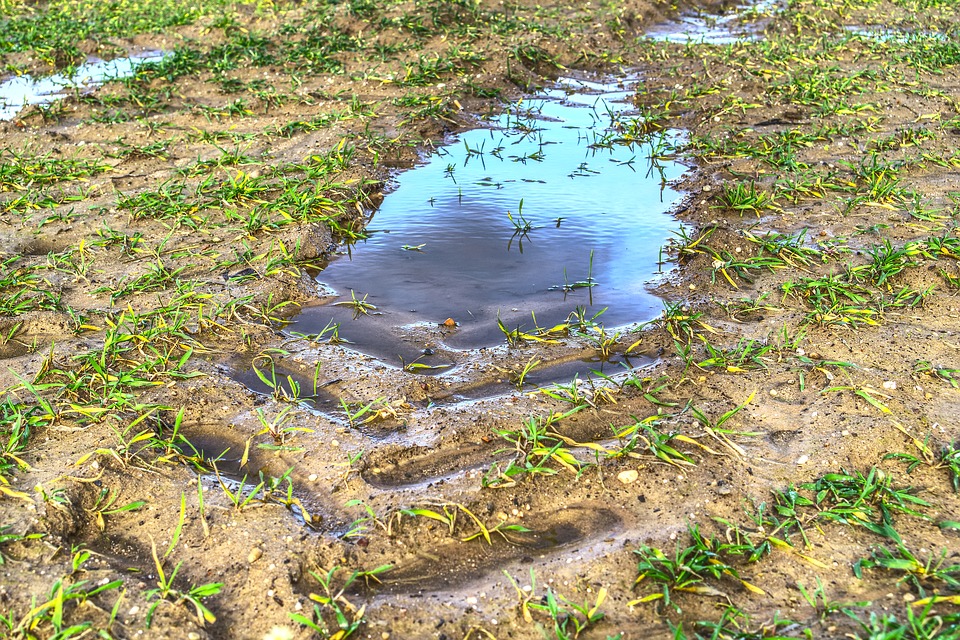
Global climate change is scary. Every day there is something new in the news about the actual impacts this phenomenon is having. Species are going extinct. Glaciers are melting. The coral reefs are bleaching.
Some people choose to turn a blind eye to the impacts of global climate change, and instead they focus on things like economic growth and jobs reports. However, one impact that no one should ignore is how agriculture is being affected.
We all have to eat to live.

A major way that farming is suffering from climate change is through sea level rise. The Global Mean Sea Level (GMSL), which is measured by satellites, tide gauges, and core samples, has risen by four to eight inches in the last hundred years. Without any significant anthropomorphic changes, sea levels are predicted to continue to rise.
The following are some of the ways sea level rise will impact farming.
Groundwater Contamination
In many areas of the world, people get their freshwater from groundwater. This water is pumped up from aquifers to be made available for human use. One of the most significant ways freshwater is used is for agriculture.
Unfortunately as sea levels rise, saltwater encroaches into the water table. So now water that was previously fresh is salty. This makes these previously reliable sources now unsuitable for agriculture.

Increase in Flooding
With rising sea levels, storm surge becomes more widespread and catastrophic. This leads to greater amounts of land being exposed to saltwater flooding. Land that was previously never exposed to saltwater is now being exposed to it.
This makes growing crops like rice, bananas, and coconuts more difficult as these crops are mostly grown in low-level coastal areas. Flooding in these areas can kill these crops and lead to failures. This will likely heavily impact coastal countries.

Erosion will be More Widespread
As flooding becomes more frequent and far-reaching, erosion will also become more widespread. When flood waters recede, they sweep away soil and land. This can deteriorate agriculture lands, which previously did not flood or only did so infrequently.
Unfortunately, erosion control measures are often costly and ineffective. This makes them particularly problematic in developing countries with limited financial resources. Many times agricultural land heavily impacted by erosion will be permanently unusable.

Higher Salinity in Soils
As saltwater increasingly floods lands, the salinity of the soil increases. This directly impacts the fertility of the soil for crop production. Essentially, too much salt will kill many crops.
This is particularly true and relevant for rice. Rice farms are frequently flooded, and the crop itself is especially sensitive to salt. In response to these new pressures of rising sea levels, researchers are developing rice varieties that can handle higher salinity and other environmental stresses.

Aquaculture will be More Difficult
Aquaculture is a widespread agricultural practice of increasing importance as global fisheries are threatened. Many commonly-consumed species are farmed with aquaculture like: tilapia, shrimp, oysters, and catfish. Aquaculture is present in many different countries around the globe.
Many commonly-farmed species require a precise mixture of both freshwater and saltwater. Types of species with requirements like these include both shrimp and oysters. As sea levels rise, the predictable amount of saltwater in areas changes leading to uncertainty and difficulty. Unfortunately, this can cause both economic loss for farmers and increased environmental impacts from the farms.
The rapid rate of sea level rise could prove to be one of the most-costly and devastating impacts of global climate change. The effects of sea level rise on agriculture in particular should be very concerning. After all, agriculture is of paramount importance for our global society.
While the effects of sea level rise on agriculture can already be seen, these effects are sure to become more pronounced as the seas continue to rise to higher levels. Innovation in farming techniques will become increasingly necessary in order to deal with the many changes in conditions and stresses. Agriculture is just one of many industries which will continue to be impacted as the climate changes.
Guest post by Craig Scott, editor and writer at Green and Growing
About the Author
 I love to spend all the time I can outdoors and find every excuse to leave my house. I write about everything about our planet and I edit even more of it. I hope you'll join me in making the Earth a cleaner and greener place!
I love to spend all the time I can outdoors and find every excuse to leave my house. I write about everything about our planet and I edit even more of it. I hope you'll join me in making the Earth a cleaner and greener place!
You may also like
A Guide to Urban Gardening In The Modern World
How Community Supported Agriculture Benefits Consumers, Farmers and Environment
Dutch Startup Created Sustainable Irrigation Solution For Farmers Across The World
Norwegian Startup Created Solution That Turns Desert Soil into Fertile Soil
This Swiss Startup Created a Revolutionary Solution for Industrial Agriculture
